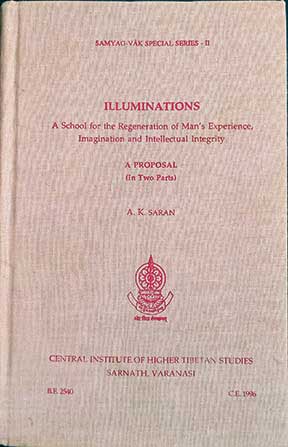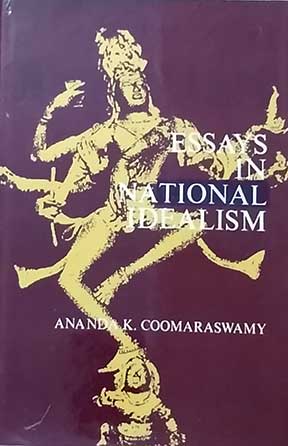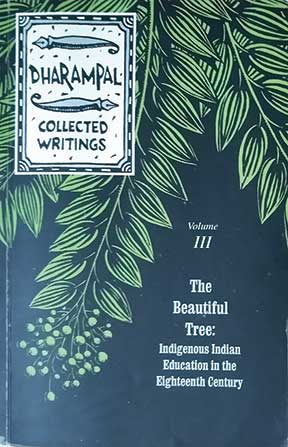Arun Elassery
I was an average student in school and secured only 64% marks in my 12th board exams. This meant that, in 1983, I had to enroll for BSc Maths in a bottom-ranked college of Delhi University. I studied desperately for one year, and to my great surprise, got through the entrance and joined IIT Kharagpur in 1984. Passing through an IIT inflated my ego and it took many years for me to realize that I was efficiently educated to be totally alienated from India. Unfortunately for me, the promise of being fully fit for the global Western world of international travel and five-star hotels also didn’t work out. I tell my friends that it took 4 years for me to become an engineer and would probably take forty more to undo the damage.
I have been on a long process of unlearning – not having a career, getting married and homeschooling 3 children! Researching resources that help in this process and in increasing my clarity of seeing things as they are. In this process, I stumble upon the works of some great Indians, relatively unknown, who have been instrumental in helping me undo the educational brainwashing I have been through. Let me share quotes from the works of a few of them to give you an idea.
“Modern higher education in India has totally failed in all important ways and the universities and all other wings of the educational establishment are working towards the perpetuation and reinforcement of a deadening of the mind and imagination of those who go through them…. Further, there is the conviction that the ruling elite of independent India inherited from its former masters the task of strengthening inertia and promoting intellectual degeneration and it clings to this alien heritage with a vengeance; it is clear, therefore, that no matter how loud and persistent our talk of radically changing the inherited educational structure, there is no prospect whatsoever of any real transformation being effected by the ruling political and cultural elite. In fact, it is strange and depressing to find that behind the scene all political parties in India reveal an ominous unanimity with regard to this negative conservatism in educational theory, policy and practice.

If any effort towards the regeneration of Man’s experience, imagination and intellect is to be made, it has to begin and continue outside and independently of the present educational, political and cultural establishments. The universities are dead today…. The worship of the dead that rules our academic establishments today is closely allied to the neo-colonial politics that dominates our country, and naturally draws its strength and prestige from the State and the political parties. And yet we hope and pray that there will arise an intellectual group, particularly from among the youth, that will slowly and steadily become deeply aware of our wretchedness as a people and the necessity of a dignified and courageous response to it.”
– From ‘Illuminations, A School for the Regeneration of Man’s Experience, Imagination and Intellectual Integrity’ by A.K. Saran

“The system of education set up by the British creates antinational tendencies by ignoring or despising almost every ideal of the Indian national culture. Most students lose all capacity for the appreciation of Indian culture and become strangers in their own land. Indian culture, whether Hindu or Muhammadan, is essentially religious. Regardless of the example of almost every Indian ruler since history began, the Government completely ignores Indian culture. The schools are not part of Indian life (as were the tols and maktabs of the past), but antagonistic to it. The education is really based on the general assumption – nearly universal in England – that India is a savage country, which it is England’s divine mission to civilize.”
– From ‘Essays in National Idealism’ by Ananda Coomaraswamy

“The neglect and deliberate uprooting of Indian education, the measures which were employed to this end, and its replacement by an alien and rootless system – whose products were so graphically described later by Ananda Coomaraswamy – had several consequences for India. To begin with, it led to an obliteration of literacy and knowledge of such dimensions amongst the Indian people that recent attempts at universal literacy and education have so far been unable to make an appreciable dent in it. Next, it destroyed the Indian social balance in which, traditionally, persons from all sections of society appear to have been able to receive fairly competent schooling…. And most importantly, till today it has kept most educated Indians ignorant of the society they live in, the culture which sustains this society, and their fellow beings; and more tragically yet, for over a century, it has induced a lack of confidence, and loss of bearing amongst the people of India in general.”
– From ‘The Beautiful Tree: Indigenous Indian Education in the Eighteenth Century’ by Dharampal
“The methodologies of teaching and learning were very diverse and interesting. There were no time constraints. No sitting in this or that way etc. There was a great singer from Adilabad called Narayan Rao. He went to Baroda to become a chela of Fayaz Khan Sahib. He was one amongst the crowd of chelas and stayed near the Guru for many months. The Guru, of course, was totally oblivious of most of his many chelas including Narayan Rao. And one day when the Guru was singing a new taan, Narayan Rao unthinkingly said, “Wah ustaad.” This was the only voice from the crowd of chelas sitting in front of the Guru. Khan sahib stopped in mid-song and imperiously asked, “Who said that? Who said wah ustad?” When Narayan Rao tentatively put his hand up, he was asked who he was. Narayan Rao told him he was also one of the chelas. “Oh, so you are one of my chelas,” said Fayaz Khan Sahib, “Why did you say wah ustad?” Narayan Rao timidly said that he thought that the new thing the Guru had done was great. Khan Saheb said, “Oh, you understood that it was a new thing. You can now go back and teach using my name.” Narayan Rao’s studies were officially over.”
– Translated from a YouTube video of Ravindra Sharma of Kalaashram, Adilabad
“About 15 years ago I had a long conversation with one of the most profound drashtas of our times, Shraddheya Agrahar Nagraj-ji about the difference between samajhna (to understand) and samjhaanaa (to make the other understand). And he said something which has stayed with me and I keep dwelling over it. He said, “samjhaana tark vidhi se hota hai, par samajhna anubhav vidhi se hota hai” (when we try to make the other understand then it is through a logical process but when we understand something it is through the process of realization, it is experiential). This needs to be contemplated on.”
– From an article by Pawan Kumar Gupta of SIDH, Mussoorie
Readers may have heard of some or all of the original thinkers whose quotes I have assembled above. Even so, I hope that these quotes set you thinking about a different way of looking at education in India and perhaps, more importantly, about ourselves as a proud, ancient civilization that has been temporarily beaten down and made to forget our greatness. May all of us remember and stand tall again!
The author, an alumnus of IIT Kharagpur, has 3 decades of experience in Engineering, e-learning and Education. He is the author of two books on “Learning to Learn” and blogs regularly at http://blog.sidhsri.org/.
